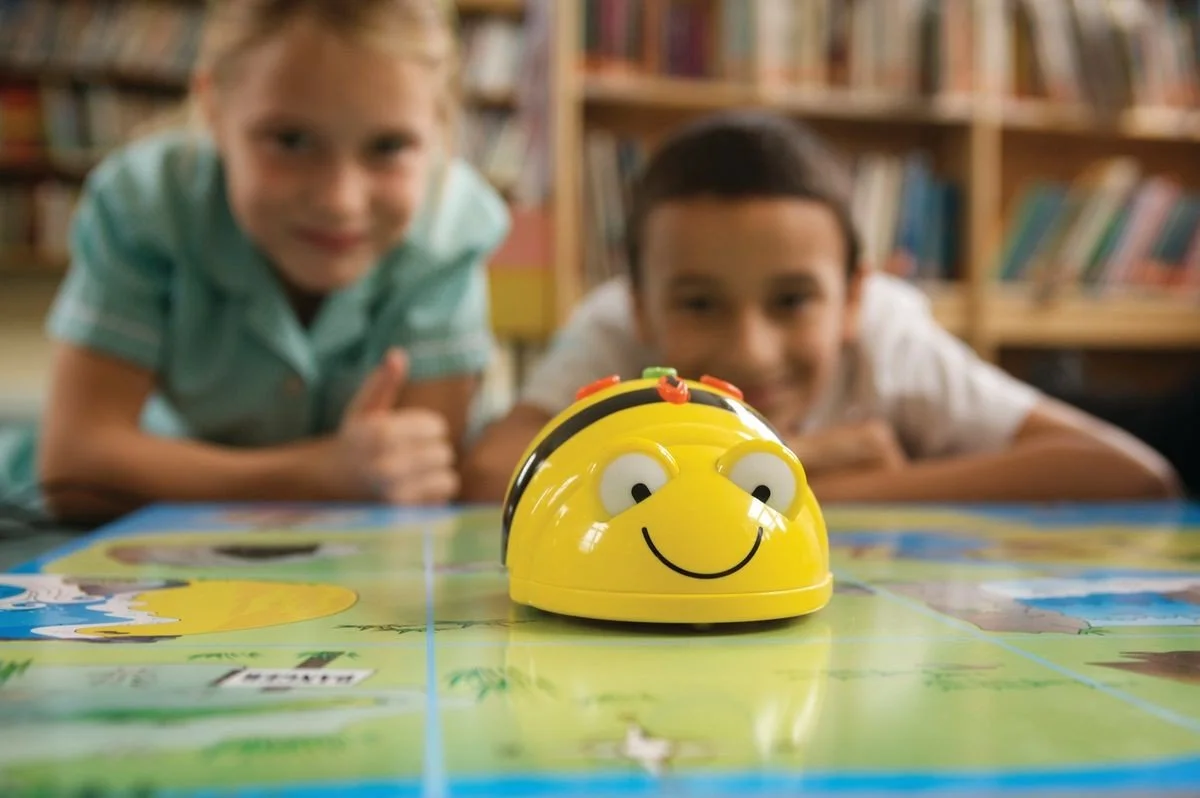Can coding activities help preschoolers learn math?
Picture a preschool classroom: students crowd around a sand table, dumping bucketfuls and exploring gravity. Another group works on a themed art project, learning the history of an upcoming holiday. Another group engineers a tower out of blocks. And the last group is learning to code.
Coding education for preschoolers? A new pilot study in EdWeek’s Spotlight on Early Learning says it might have surprising benefits even for the littlest of kids.
Because coding education and research typically focus on middle schoolers and beyond, a professor at Eastern Connecticut State University wanted to see how coding impacts development in younger kids.
The preschool students were given a pre-assessment before playing with a Bee-Bot, a robotic toy shaped like a bumblebee that can be controlled with various directional commands. The children worked together during four sessions, completing tasks as directed.
After just four of these playtimes, there was a statistically significant increase in the students’ math abilities overall. The post-assessment also demonstrated the kids improved their problem-solving skills, creativity and determination.
“There’s not a lot of research in preschoolers, and my study is showing that there is value in developmentally appropriate coding exercises in preschool,” Sudha Swaminathan, the lead researcher, said. “Even four sessions are really increasing children’s math abilities.”
The study highlighted additional benefits, including the potential to build these skills without excessive screen time or complex programming requiring teacher professional development.
Though the pilot study had a relatively small sample size, the undeniable benefits are inspiring optimism for the full study, scheduled to start in 2023.

